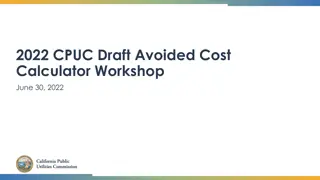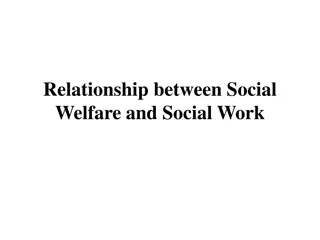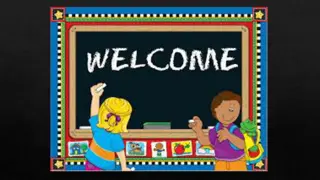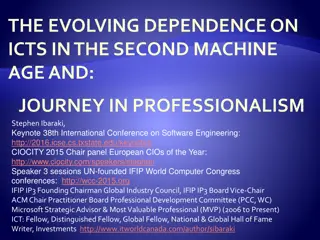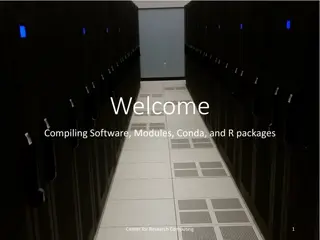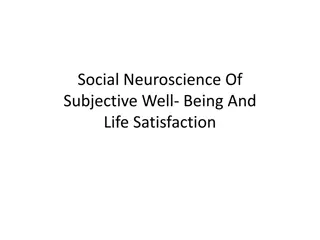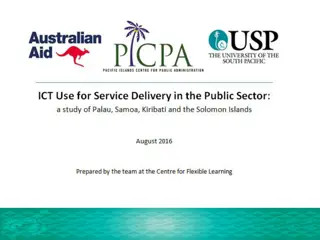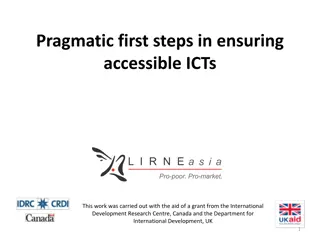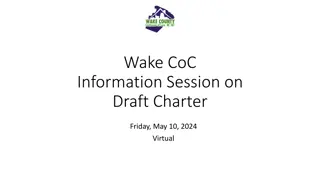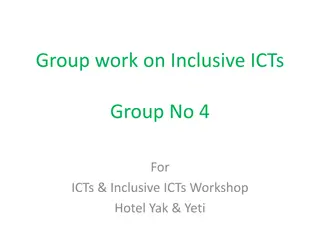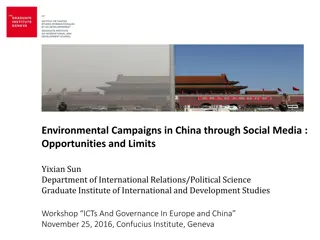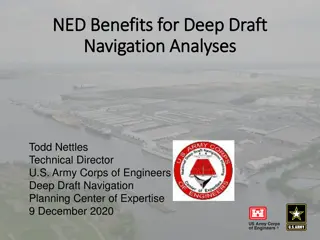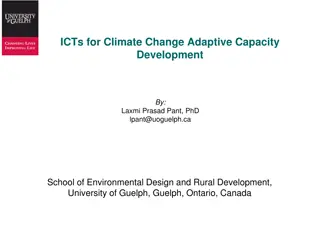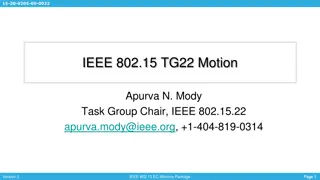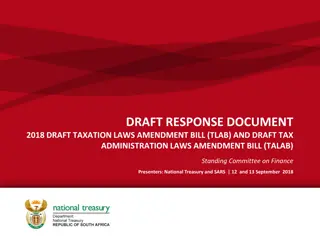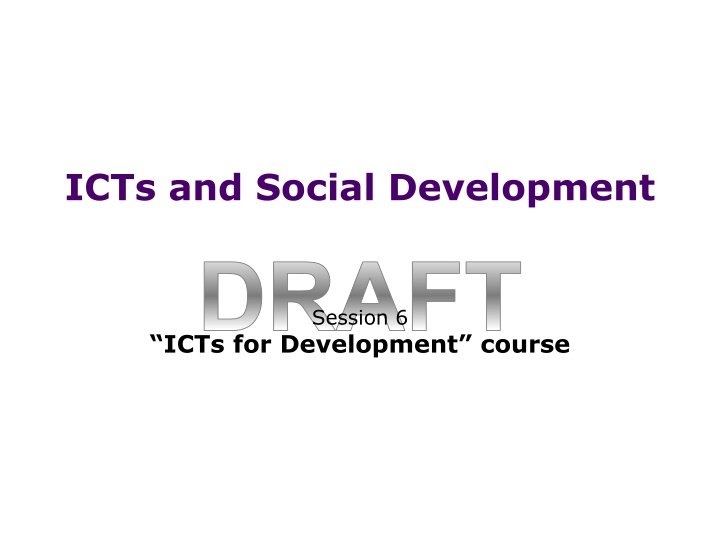
ICTs and Social Development: Key Insights on Health Systems and e-Health Practices
Explore the intersections between ICTs and social development, focusing on the impact of technology on health systems, human development, and e-Health practices. Delve into key concepts such as the Human Development Index, the relation between health, education, and economic growth, and the role of ICT applications in the healthcare sector. Understand the significance of information value chains in healthcare and the design-reality gaps in implementing e-Health solutions. Gain insights into conflicting institutional logics in e-Health practices across different regions.
Download Presentation

Please find below an Image/Link to download the presentation.
The content on the website is provided AS IS for your information and personal use only. It may not be sold, licensed, or shared on other websites without obtaining consent from the author. If you encounter any issues during the download, it is possible that the publisher has removed the file from their server.
You are allowed to download the files provided on this website for personal or commercial use, subject to the condition that they are used lawfully. All files are the property of their respective owners.
The content on the website is provided AS IS for your information and personal use only. It may not be sold, licensed, or shared on other websites without obtaining consent from the author.
E N D
Presentation Transcript
ICTs and Social Development DRAFT ICTs for Development course Session 6
UNDP Human Development Index DRAFT Richard Heeks, GDI, University of Manchester, UK Image source: http://hdr.undp.org/en/2016-report/
Relation Between Health, Education and Economic Growth Economic Growth ICTs DRAFT Better Health ? Better Education Richard Heeks, GDI, University of Manchester, UK
Key Health System Actors Health Policy- Maker Health Manager DRAFT Doctor Paramedic / Health Worker / Nurse Citizen / Patient Richard Heeks, GDI, University of Manchester, UK
Key Health System ICT Applications Medical/Health Knowledge Health System Information Health Policy- Maker Health Policy IS DRAFT Doctor Paramedic / Health Worker / Health Manager Health Management IS Practitioner Knowledge Systems Health Operations IS Nurse Diagnostic & Treatment Support Systems Health System/ Health Infrastructure Data Medical/ Citizen / Patient Public Health IS Epidemiological Data Richard Heeks, GDI, University of Manchester, UK
Simplified (DIKDAR) Information Value Chain Health Knowledge DRAFT Health Information Decision Learning Health Data Health Health Action Health Results Richard Heeks, GDI, University of Manchester, UK
Design-Reality Gaps DRAFT Design Reality Richard Heeks, GDI, University of Manchester, UK
e-Health: Conflicting Institutional Logics Institutional Logic Institutional Logic Values Organisations Values Organisations DRAFT Practices Individuals Practices Individuals Decentralisation Scientific Medicine Rational Transparency Politicised Corruption Centralisation Traditional Healing Brazil Tajikistan Peru Richard Heeks, GDI, University of Manchester, UK
Key Education System Actors Education Policy- Maker Education Manager DRAFT Teacher / Lecturer Student / Learner Richard Heeks, GDI, University of Manchester, UK
Key Education System ICT Applications Topic/Pedagogic Knowledge Education System Information Education Policy-Maker Education Policy IS DRAFT Teacher / Lecturer Education Manager Education Management IS Practitioner Knowledge Systems Education Operations IS Teaching & Learning Support Systems Education System/ Education Infrastructure Data Teaching/ Student / Learner Public Education IS Learning Performance Data Richard Heeks, GDI, University of Manchester, UK
One Laptop Per Child DRAFT Richard Heeks, GDI, University of Manchester, UK Image source: https://en.wikipedia.org/wiki/OLPC_XO#/media/File:XO-Beta1- mikemcgregor-2.jpg
ICTs Usage Levels and Learning results suggest that limited use of computers at school may be better than not using computers at all, [but] using them more intensively than the current OECD average tends to be associated with significantly poorer student performance (OECD 2015:16) DRAFT Extent of learning Extent of use of ICTs Richard Heeks, GDI, University of Manchester, UK
e-Education Change and Impact Change Meaning Example Impact Transformation New Learning Paradigm Motivation for Learning ICT-Enabled Community of Practice Educational empowerment Redesign Radical Change to Learning Processes Incremental Change to Learning Processes Automation Teacher-Assisted, ICT-Enabled Group, Interactive Learning Learning Games and Drills Building wider capabilities Improvement Some skill improvements Digitisation Bringing Computers into Classroom Little or negative learning impact
Helping Achieve Development Goals or Not? Entertainment Gaming DRAFT Gambling Richard Heeks, GDI, University of Manchester, UK Image sources: https://www.youtube.com/; http://www.addictedcity.com/online-gambling/; https://www.primagames.com/games/league-legends/feature/most-wanted-video-games-2020- olympics
The Capabilities Framework Values Choice Individual/ Community/ Context Differences Economic Political Social Security DRAFT Informational Realised Functionings Unrealised Functionings Opportunities: Contextual Capabilities Specific Capabilities Development Outcomes Freedoms Richard Heeks, GDI, University of Manchester, UK
Capabilities in Practice X DRAFT Image sources: Richard Heeks, GDI, University of Manchester, UK https://en.wikipedia.org/wiki/Bicycle#/media/File:Left_side_of_Flying_Pigeon.jpg; https://en.wikipedia.org/wiki/Culture_of_Cambodia#/media/File:Cambodian_girls_o n_bicycle.jpg; http://aminnesotaninchina.areavoices.com/2012/04/21/disabled-in-china/; http://www.forestsmonitor.org/fr/reports/550050/550056
ICTs and Capabilities Differences and Opportunities Values and Choice Digital commodities e.g. hardware, software Digital capabilities = Vectors of potential digital functionings (affordances) Realised digitally- enabled functionings and their functionalities e.g. digital data processing/ communication e.g. faster and easier access to better information DRAFT e.g. personal preferences, needs, or social pressures e.g. personal, social and environmental conversion factors e.g. digital communication Means to Achieve Freedom to Achieve Achievement Richard Heeks, GDI, University of Manchester, UK Adapted from Zheng & Walsham 2008; itself adapted from Robeyns 2005

